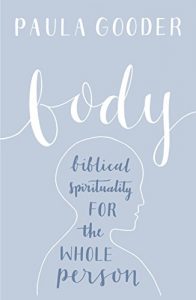The word ‘spirituality’ is notoriously difficult to define or tie down. It is often used in a relatively vague way to refer to the inner relationship between one’s ‘spirit’ or ‘soul’ and God. The implication is that people only relate to God with their ‘inner’ being (the soul/spirit) and not with any other part of who they are.
There is a lurking influence of Neo-Platonism within Christian thinking that tends to assume that the material is bad and the spiritual good; that there is a gaping hole between our inner and our outer selves and that the proper location of devotion is our inner being. There is a further assumption that, especially in the writings of Paul, the soul/spirit is to be placed in the ‘good’ category while opposite it, in the ‘bad’ category, is the body/flesh – leaving the question of what is meant by heart and mind largely ignored.
Paula Gooder explores what these six key concepts mean in the Bible, especially in the writings of Paul, before moving on to explore what Paul intended by the contrasts he drew, and what implications this all has for the way we think and speak about our spirituality today
There is a lurking influence of Neo-Platonism within Christian thinking that tends to assume that the material is bad and the spiritual good; that there is a gaping hole between our inner and our outer selves and that the proper location of devotion is our inner being. There is a further assumption that, especially in the writings of Paul, the soul/spirit is to be placed in the ‘good’ category while opposite it, in the ‘bad’ category, is the body/flesh – leaving the question of what is meant by heart and mind largely ignored.
Paula Gooder explores what these six key concepts mean in the Bible, especially in the writings of Paul, before moving on to explore what Paul intended by the contrasts he drew, and what implications this all has for the way we think and speak about our spirituality today






